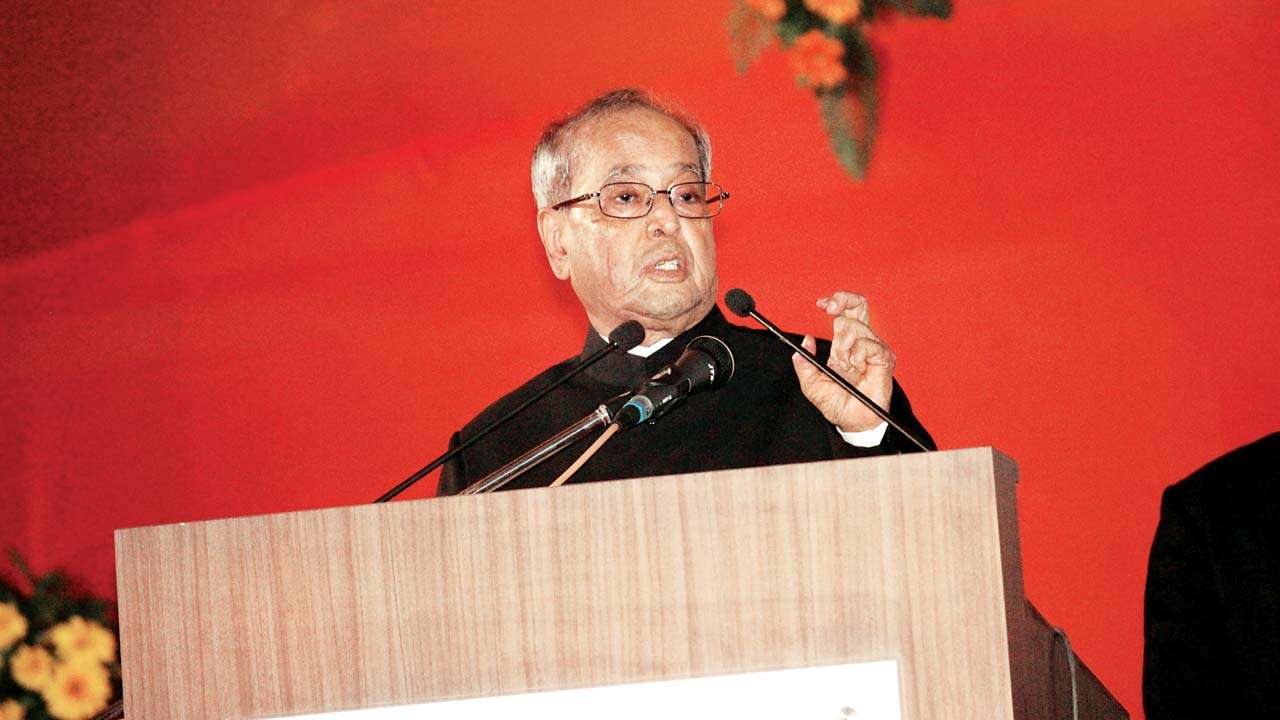
Pranab Mukherjee's decision to speak at RSS headquarters had raised eyebrows in the Congress with many of its leaders openly condemning it as a political gift to BJP. However after his speech, congress was mostly silenced.
Some have termed Mukherjee's speech at RSS as a classic piece of oratory on nation, nationhood and patriotism (full text can be found here). His narration had snippets from the long history of India- outlining the openness of the Indian society in terms of cultural and scholarly exchanges, pluralism of India encompassing multiple cultures, religions, languages as defining of nation state of India. His speech had a clear message to RSS on tolerance, respect for pluralism and perils of defining nationhood in terms of narrow identities of religion and region.
The rhetoric of Mr. Mukherjee was largely based on the real and imagined glory of the past. It failed to acknowledge the fractures in its identity, and the conflicts and contradictions in society that shaped its history at various times in the past.
As much as we bask in the glory of our past, we must own and reflect on its dark shades. As much as we were open to trade, culture and faith, we were also stuck in the rigid belief systems about knowledge and culture that prevailed for millennia, that prevented diffusion of assimilation of knowledge from the western world. Our identity has emerged from confluence and assimilation of multiple faiths and culture. Religious fanaticism has destroyed temples of Hindus, Buddhists and Jains, and mosques and killed millions of people from the medieval period to the present. As much as we talk about tolerance, the intolerance towards its own people was reflected in the caste system and gender discrimination for tens of centuries.
As much as we loathe the era of darkness in the colonial times, opening gates to western knowledge made us reflect on our identity, our past and the ills of our social and political systems. The struggle for Independence was as much a fight against colonial rule, as our struggle to discover our ideas of Nation and Nationalism.
Many great speeches in history have reflected on the state of society, acknowledged its flaws and called for a new beginning. Jawaharlal Nehru in his Tryst with destiny speech hails the dawn of a new age and hopes that ".. the soul of a nation, long suppressed, (now) finds utterance." He also reminds us that India, in her long history, "trackless centuries are filled with her striving and the grandeur of her success and her failures.", and with Independence, the period of ill fortune ends and India discovers herself again. Nehru also cautions that the future is not easy , but needs incessant striving to fulfil the pledge that awe have taken.
In his final speech to the Constituent Assembly on November 25, 1949 Ambedkar uttered three warnings "to maintain democracy not merely in form, but also in fact". He cautioned against the use of unconstitutional means (what he called Grammar of Anarchy) to achieve social and political objectives, warned against Bhakti or hero worship in Politics- "Bhakti in religion may be a road to the salvation of the soul, but in politics, Bhakti or hero-worship is a sure road to degradation and to eventual dictatorship", and urged not be content with political democracy, but base it on social democracy. Reflecting on social and political contradictions, he said "In politics we will have equality and in social and economic life we will have inequality. In politics we will be recognising the principle of one man one vote and one vote one value. In our social and economic life, we shall, by reason of our social and economic structure, continue to deny the principle of one man one value."
Obama in his speech A more perfect Union, at the constitutional centre, Philadelphia, in 2008 addressed the issue of racial tensions and racial inequality in US. Slavery and racial divisions through de jure segregation (Jim Crow laws), supressing the voting rights, and denial social and economic opportunities for the blacks has marred the US history for centuries. He highlighted the efforts of successive generations of Americans "through protests and struggle, on the streets and in the courts, through a civil war and civil disobedience" to narrow the gap between the promise of Americas ideals and the reality of their time." He traced the current disparities in the African American communities to the inequalities passed from earlier generations, under slavery and Jim Crow laws.
Great speech should have style, substance and impact. It must be beautiful hear and read, have a worthy theme that must appeal to and inspire the audience and persuade the audience of some fact or idea. It must seem relevant for decades and centuries to come. Pranab Mukherjee's speech is laden with grand narrative of India's past, scores high on style, mediocre on substance and its impact to change its hearts and minds of RSS- is largely uncertain.
Asst Professor in Physical and Social Science at IITGN